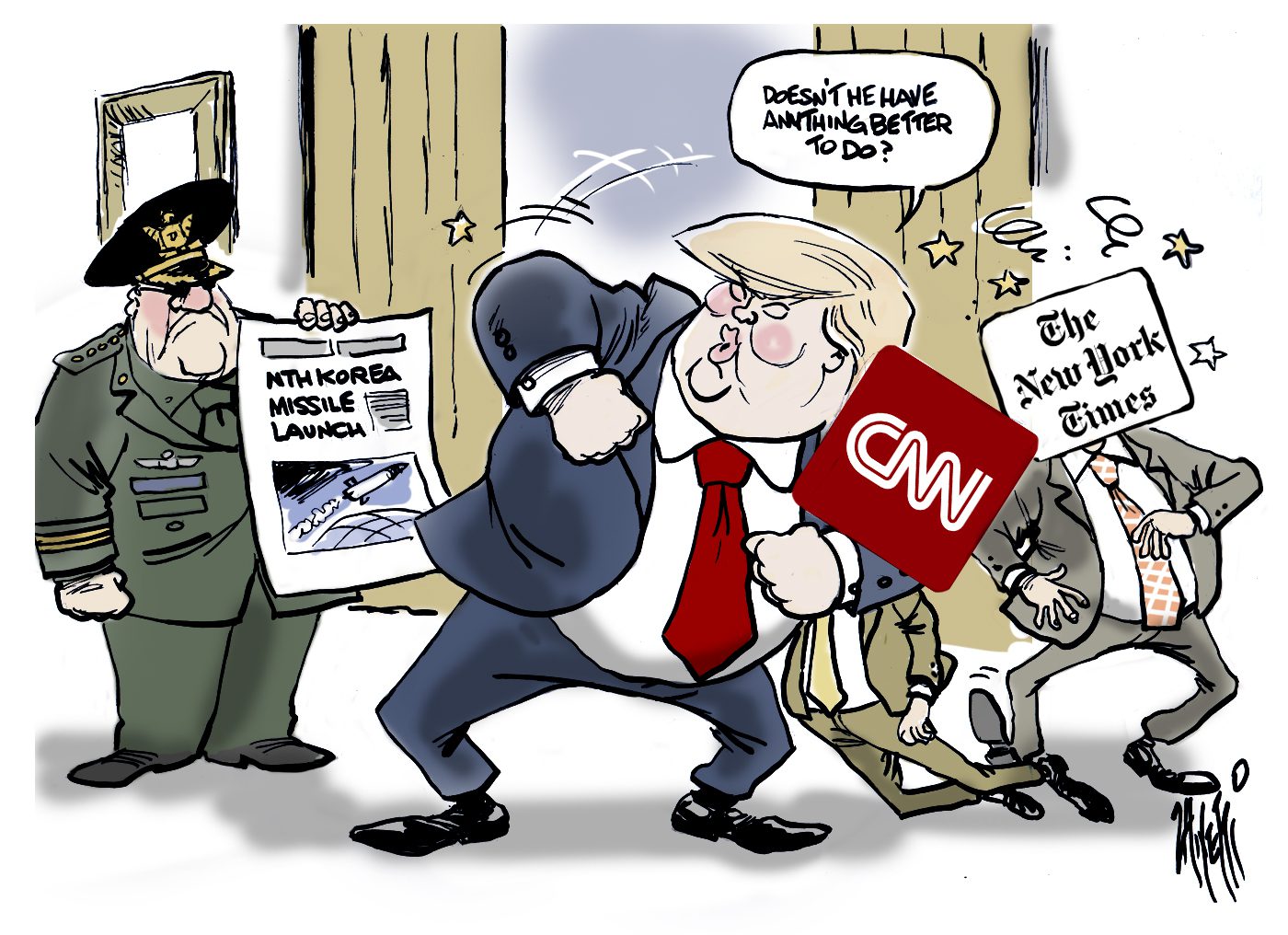BY DAVID PERRYMAN
 In January 1787, Thomas Jefferson wrote this to fellow Virginian and Continental Congressman Edward Carrington: “The basis of our governments being the opinion of the people, the very first object should be to keep that right; and were it left to me to decide whether we should have a government without newspapers, or newspapers without a government, I should not hesitate a moment to prefer the latter, but I should mean that every man should receive those papers and be capable of reading them.”
In January 1787, Thomas Jefferson wrote this to fellow Virginian and Continental Congressman Edward Carrington: “The basis of our governments being the opinion of the people, the very first object should be to keep that right; and were it left to me to decide whether we should have a government without newspapers, or newspapers without a government, I should not hesitate a moment to prefer the latter, but I should mean that every man should receive those papers and be capable of reading them.”
Jefferson believed that a free press and an educated electorate were essential to a free society. His belief was based upon more than a whim. He knew the story of a small, family-owned newspaper that was published on Manhattan Island for only 18 years, but during that short span laid the groundwork for one of America’s most enduring and important freedoms. You, too, should know that story in the era before the Bill of Rights and when truth was not a defense to a charge of libel or slander directed toward the government.
The year was 1708 and impoverished German refugee Nicolaus Zenger had taken his family in search of a better life. In England, his group was called “disease-ridden, Catholic bandits who had arrived in England ‘to eat the Bread out of the Mouths of our People.’” That country was politically polarized over the immigration debate from local pubs to the floor of Parliament.
The group was “dispersed” to New York in 1710 where Nicolaus died shortly after arrival. One son, John Peter Zenger served a six-year apprenticeship and opened his own print shop at age 29. When Zenger was 35, King James II appointed William Cosby as the 24th Colonial Governor of the Province of New York.
Cosby was very wealthy and oppressive and shortly after being installed demanded that a popular former governor pay him half of the money earned prior to Cosby’s arrival. When his request was denied, Cosby filed suit but anticipated he would lose in a jury trial. He disposed of this problem by demanding the case be heard by three judges in lieu of a jury of the defendant’s peers. Two of the judges were friendly to the new governor and ruled in his favor, but the third wrote a stinging dissent detailing the illegality of the proceeding. Cosby promptly fired the dissenting judge.
In the following weeks, Cosby attempted [but failed] to rig the election of an assemblyman; enrich himself through a multitude of other improprieties, including the illegal seizure of lands; stole tax dollars; failed to protect settlements from Indian attack; and even colluded with the enemy French by allowing spy ships into New York Harbor.
John Peter Zenger responded to Cosby’s oppressive and wrongful acts by detailing the antics in his New York Weekly Journal, calling Cosby’s acts “a threat to the liberties and properties” of the people.
It would not have been out of character for Cosby to have alleged a “witch hunt” or that the media was “out to get him” or that the “failing” New York Weekly Journal was full of “fake news.”
History tells us that Cosby retaliated by attempting to get Zenger indicted for libel by a grand jury and to seize and burn copies of the Journal. When unsuccessful, Cosby ordered Zenger arrested and jailed for nine months awaiting trial in the pre-Bill of Rights Era.
At Zenger’s eventual trial, 282 years ago next week, his attorney, Philadelphia lawyer Andrew Hamilton, famously told the jury, “It is not the cause of one poor printer, but the cause of liberty.”
Fortunately, the jury was convinced and, according to historian Leonard Levy, “the Zenger verdict made people exult in liberty and the relationship of liberty of the press to liberty itself.”
That relationship exists today and it is essential that Americans understand that relationship. We are fortunate that Jefferson and our forefathers knew the story of Zenger’s newspaper and guaranteed that right in our First Amendment Freedom of the Press.
– David Perryman, a Chickasha Democrat, represents District 56 in the Oklahoma House







